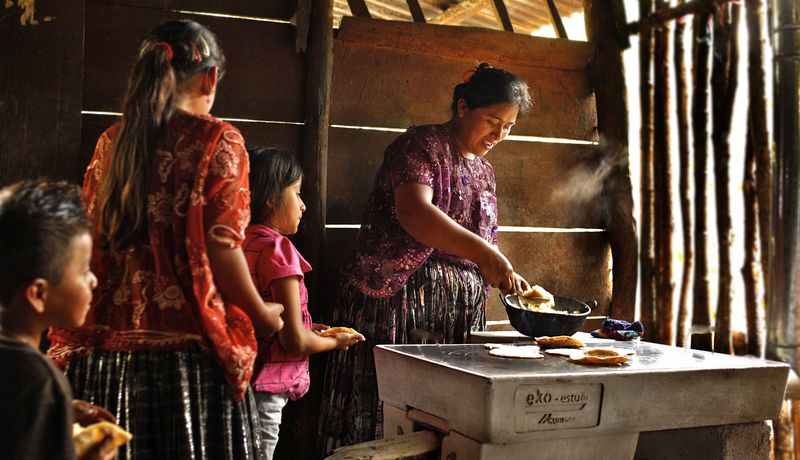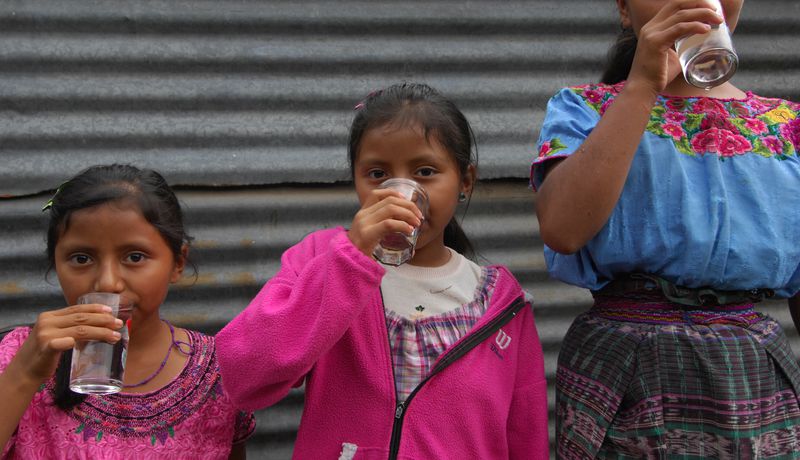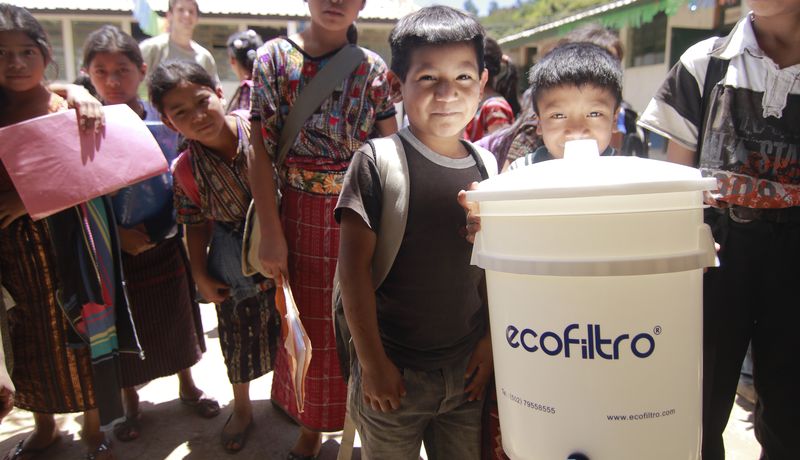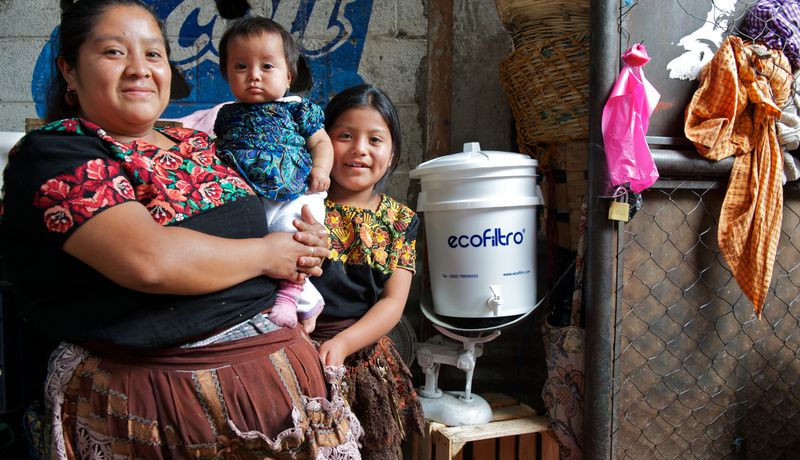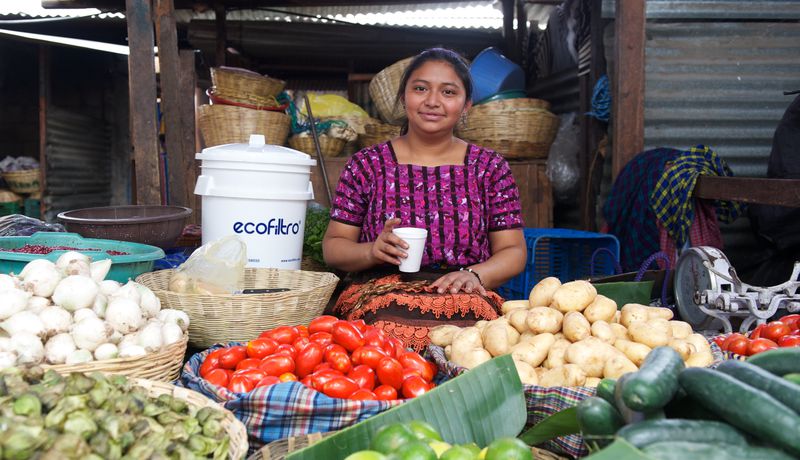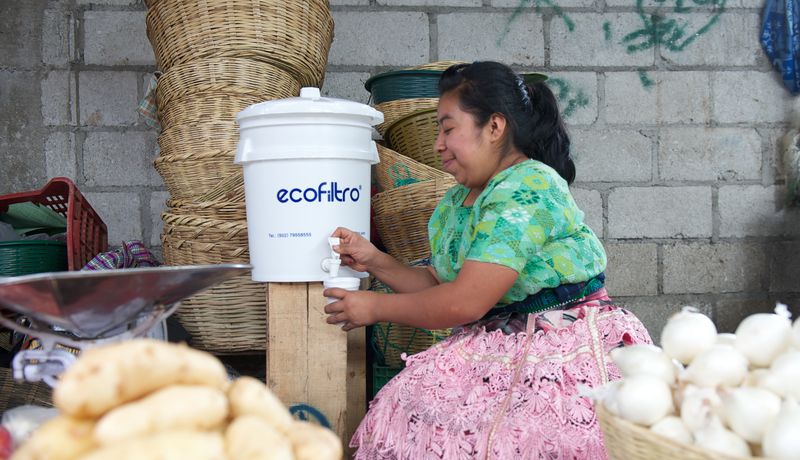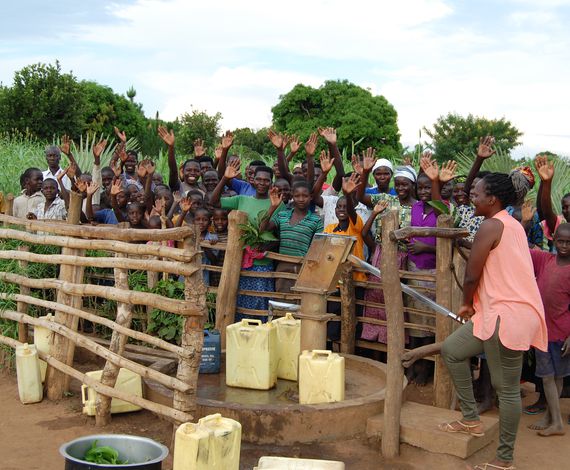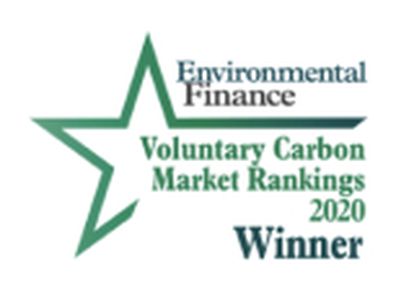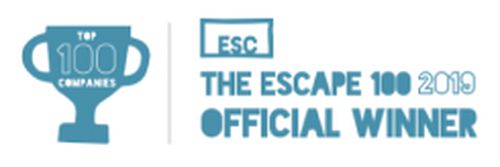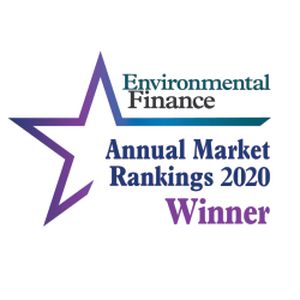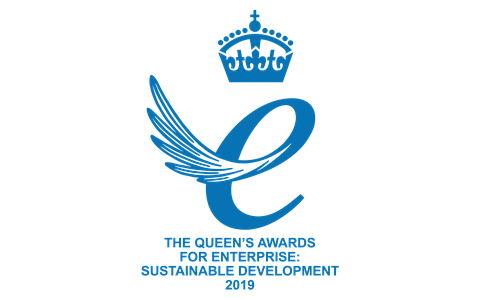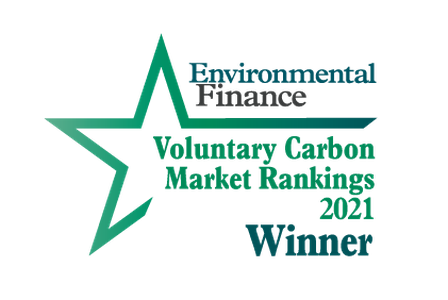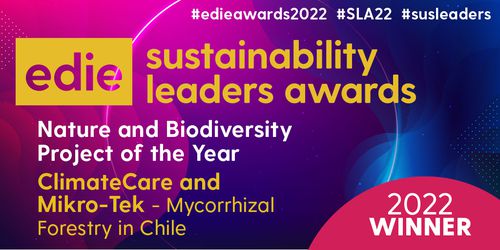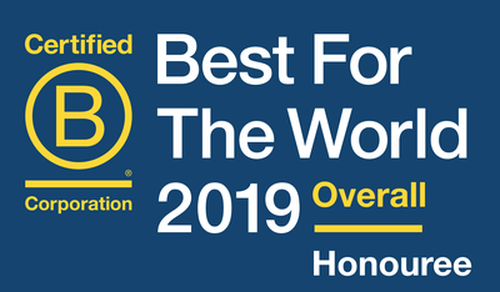Water-borne disease has been identified as a national priority in Guatemala given the high incidence of diarrhoeal disease and chronic malnutrition.
This project, which was the first Gold Standard water treatment or cookstove project in the country, distributes water filters and stoves that enable access to clean water and improve cooking conditions by increasing fuel efficiency and reducing harmful indoor air pollution.
Improved stove design means less fuel is required for cooking and filters eliminate the need to boil water for drinking; both alleviating the pressure on national forests.
Over half of the rural population of Guatemala do not have access to water that is free from faecal or chemical contamination. | World Bank
In addition to delivering emissions reductions to help take urgent action to combat climate change (SDG 13), the project delivers a number of other sustainable development benefits. These include:
- Good Health and Well-being: The water filter uses a gravity-fed ceramic filter made of clay, sawdust, colloidal silver and carbon to treat two litres of non-potable water per hour. It removes 99% of pathogens, making it safer for drinking and cooking by reducing water-borne disease and also reduces the need for fuelwood, consequently decreasing indoor air pollution. The distributed improved cookstove burn biomass fuel cleanly and efficiently which contributes to a reduction of indoor air pollution that families, particularly women, are exposed to.
- No Poverty: The water filters and improved cookstoves are sold to households by Ecofiltro and a local NGO, Socorro Maya. Carbon finance enables them to be made more affordable to low-income households with an 18-month payment plan that allows households to access interest-free loans. There is no upfront cost and families can begin to save on fuelwood (and the associated costs) immediately. The average household that uses an improved cookstove will reduce its biomass use by an estimated 65% which equates to 1,700kg each year. Given that 49% of households that use biomass purchase the wood, we estimate that the average family makes fuel savings of US $35 per year.
- Affordable and Clean Energy: The devices improve the affordability of energy within the project areas as less money is spent on expensive fuels. Increasing distribution of the water filtration devices and fuel-efficient stoves ensure more of the population has access to these energy, time- and cost-efficient technologies.
- Clean Water and Sanitation: Each household that purchases a water filter receives help with installation, training and after sale services from technicians. The technicians prepare and deliver public information and heighten awareness around the importance of water hygiene which helps expand community access to improved water supplies. Support is also provided by social workers; typically women employed to work part-time and maintain the project’s presence in the community.
- Life on Land: Roughly 96% of wood harvested in Guatemala is non-renewable, demonstrating highly unsustainable forest use in the country. Decreasing fuelwood use through this type of project eases the burden of overuse on forests and subsequently improves deforestation rates and the corresponding threat to biodiversity. Limiting deforestation can also minimise the risk of landslides and the negative impact on agricultural yields from soil erosion.
- Gender Equality: The project helps households save time from cooking and collecting wood; an estimated 30 minutes per day from time typically spent cooking is saved, which women can allocate to other activities.
- Decent Work and Economic Growth: Jobs are created by Ecofiltro and Socorro Maya for the manufacturing of the products, their installation, the training of households about their use, and social work in the local communities. The project estimates having 800 staff employed throughout the supply chain in both temporary and permanent roles. There is increasing demand for these technologies across the country and the material sourcing, manufacturing, distribution and maintenance has a positive impact on economic growth. This is one of only two cookstove projects running in Guatemala, and planned countrywide distribution of the concept creates opportunities for in-country and international export.
- Responsible Consumption and Production: As well as increasing the efficiency of technologies that use fuel, the project works to ensure that more people are aware of sustainable consumption practices through its school clean water programme. This programme involves selling or donating filters to schools in rural and peri-urban areas where the boiling of water is common practice. The school is required to involve students in a clean water education programme before the filters are delivered and when the filters are delivered, the parents are invited to school to hear about the importance of clean water.
Our goal is to deliver 1 billion tonnes of emissions reductions by 2030
600+ projects have been supported by Climate Impact Partners
100+ million tonnes of emissions reduced through carbon finance
The children had so many illnesses like diarrhoea and had pains in their stomach all the time. But now thankfully I have my eco filter and can use the water for cooking and for drinking.
Delivering towards the Global Goals

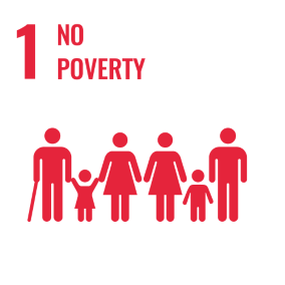
No Poverty
End poverty in all its forms everywhere

Good Health and Wellbeing
Ensure healthy lives and promote well-being for all at all ages
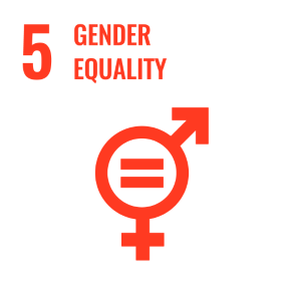
Gender Equality
Achieve gender equality and empower all women and girls
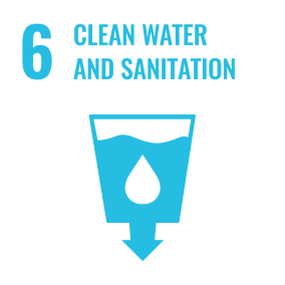
Clean Water and Sanitation
Ensure access to water and sanitation for all
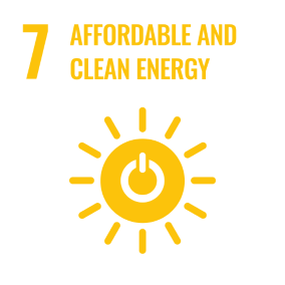
Affordable and Clean Energy
Ensure access to affordable, reliable, sustainable and modern energy
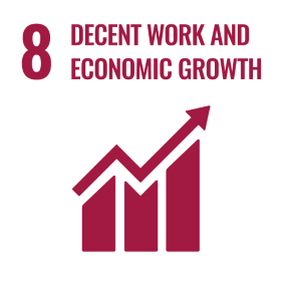
Decent Work and Economic Growth
Promote inclusive and sustainable economic growth, employment and decent work for all
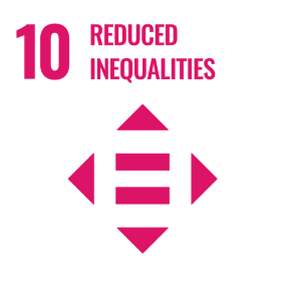
Reduced Inequalities
Reduce inequality within and among countries
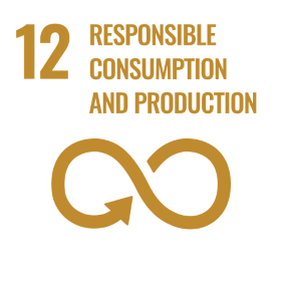
Responsible Consumption and Production
Ensure sustainable consumption and production patterns
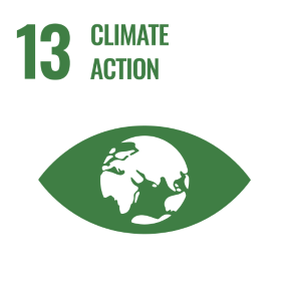
Climate Action
Take urgent action to combat climate change and its impacts
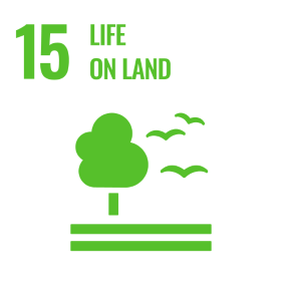
Life on Land
Sustainably manage forests, combat desertification, halt and reverse land degradation, halt biodiversity loss


Supporting our projects delivers on multiple UN Sustainable Development Goals (SDGs). You can read more on the Goals below.
Learn more about the global goalsNext Steps
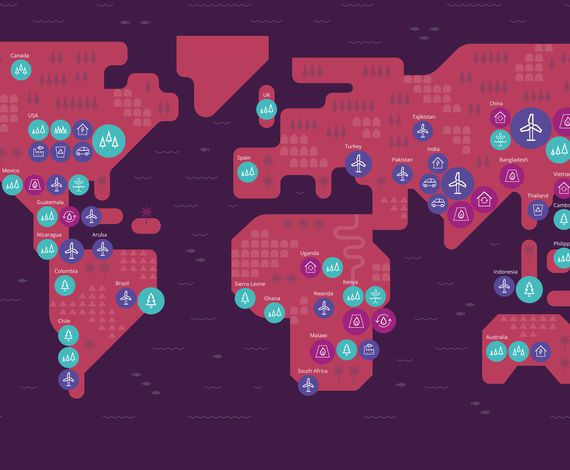
Explore our projects
Explore our range of projects across the globe: nature based solutions, health and livelihoods and sustainable infrastructure.
Explore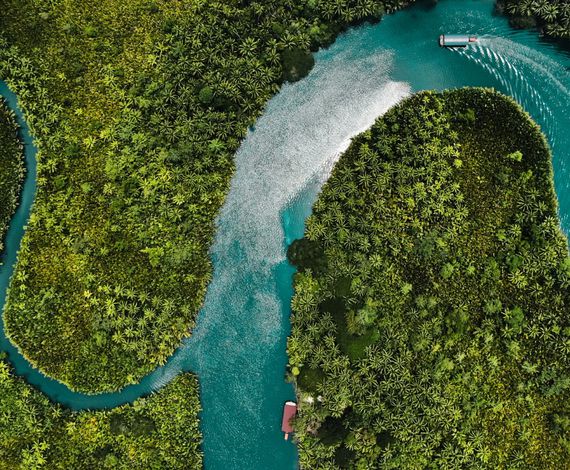
Business Solutions
We are the leading solutions provider for carbon offsetting, net zero, carbon neutrality and carbon finance project development.
Read more

